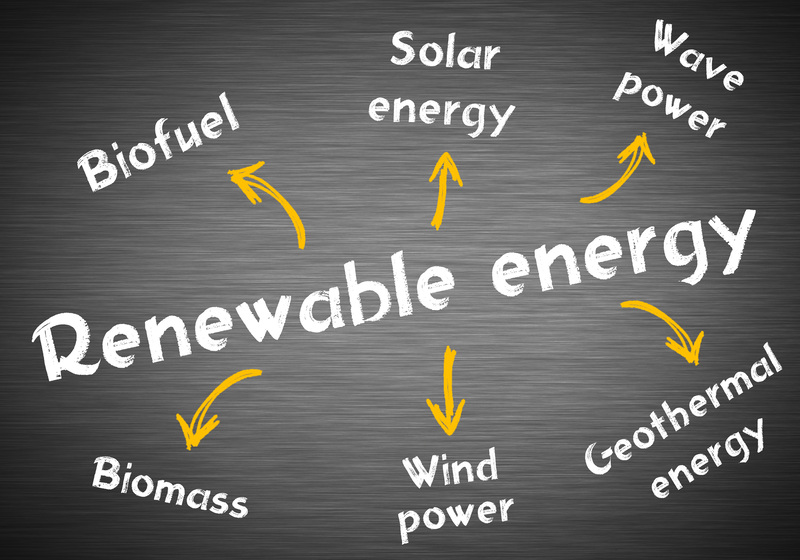Effective Strategies to Enhance Office Recycling Practices
In today's environmentally conscious world, enhancing office recycling practices is more than just a trend--it's a necessity. By improving recycling habits in the workplace, businesses can reduce waste, lower operational costs, and contribute positively toward sustainability goals. This comprehensive guide explores effective strategies for successful office recycling, offering actionable tips to transform your workplace into a green and eco-friendly space.
Why Prioritize Office Recycling Practices?
Implementing recycling strategies in the office not only helps preserve the environment but also reflects a company's commitment to corporate social responsibility. Beyond maintaining a cleaner workplace, efficient recycling offers additional benefits such as:
- Reducing landfill waste and minimizing environmental impact
- Saving company resources by reusing materials and reducing disposal costs
- Boosting employee morale and fostering a culture of sustainability
- Enhancing company reputation among clients and partners
- Complying with local and national waste regulations
With the growing emphasis on sustainability, businesses are expected to implement robust office recycling initiatives as part of their environmental policies.

Top Strategies to Enhance Office Recycling Practices
1. Perform a Comprehensive Waste Audit
Before making changes, it's crucial to understand your office's current waste streams. Conduct a waste audit to:
- Identify the types and volumes of waste generated
- Pinpoint areas with the highest potential for recycling improvement
- Track baseline data for future progress measurement
*A waste audit provides invaluable insight to tailor recycling solutions efficiently and maximize results.*
2. Set Clear, Achievable Recycling Goals
Goal-setting gives your team direction and motivation. Consider SMART goals (Specific, Measurable, Achievable, Relevant, and Time-bound) such as:
- Increasing paper recycling rates by 25% within six months
- Setting a goal to recycle 100% of electronics waste in the next quarter
Track progress regularly and celebrate milestones to keep momentum high.
3. Establish Convenient and Clearly Labeled Recycling Stations
Make recycling easy for everyone:
- Place recycling bins in high-traffic and central locations, such as near printers, break rooms, and common areas
- Categorize bins for paper, plastics, metals, glass, and electronics
- Use clear, easily understood labels and color codes (e.g., blue for paper, green for glass, yellow for plastics)
- Add signage with visual examples to help employees quickly recognize the correct bins
A well-organized recycling station reduces confusion and increases the likelihood of correct disposal.
4. Educate and Engage Employees
Your team's participation is essential. Educate employees through different methods:
- Host training sessions or workshops about recycling procedures
- Send monthly newsletters with recycling tips and policy updates
- Share success stories and statistics to demonstrate impact
- Encourage feedback and suggestions for improvement
Employee engagement transforms recycling from a chore into a shared responsibility.
5. Make Use of Digital Tools
Technology can streamline recycling efforts significantly. Incorporate digital tools such as:
- Apps to track recycling rates and provide reminders
- QR codes on bins linked to informational videos or guides
- Online platforms for employee feedback and initiative management
Leverage technology to make recycling practices user-friendly and more effective.
6. Reduce, Reuse, Then Recycle
While enhancing office recycling practices is essential, prioritize the reduction of waste before recycling:
- Encourage double-sided printing and digital document sharing
- Use reusable kitchen items instead of single-use cups, plates, and cutlery
- Repurpose old office supplies for creative uses
- Offer incentives for bringing reusable bags, bottles, and coffee cups
*By focusing on reducing and reusing, your office can minimize the burden on recycling systems and lower environmental impact.*
7. Collaborate with Professional Recycling Partners
Work with reputable local recycling firms to:
- Ensure correct processing of recyclable materials
- Arrange regular pickups for electronics, confidential documents, and other specialty waste
- Stay up to date with recycling compliance requirements
Professional partners provide expertise and may also offer educational resources or reports on your office's recycling performance.
8. Incentivize Recycling Participation
Motivate employees to participate in recycling programs using incentives such as:
- Recognition awards for departments or teams with the best recycling habits
- Small rewards or competitions for meeting recycling targets
- Public acknowledgment in staff meetings, emails, or internal newsletters
Incentives foster healthy competition and make office recycling enjoyable for everyone.
9. Regularly Review and Refine Office Recycling Strategies
Office needs and waste streams change over time. Schedule regular assessments to:
- Identify new sources of waste and recycling opportunities
- Update processes and guidelines as needed
- Solicit feedback from staff for ongoing improvements
Continual refinement ensures your recycling program remains effective and relevant.
10. Communicate Results Transparently
Keeping staff informed about recycling achievements and environmental impact fosters accountability and pride:
- Share regular reports and visual representations of progress (e.g., infographics, charts)
- Publish success stories in company communications
- Highlight improvements and thank participants
Transparent communication helps sustain long-term office recycling success and demonstrates your organization's dedication to sustainability.
Common Challenges and Solutions in Office Recycling
Challenge 1: Contamination of Recyclables
Contamination, such as mixing food waste with paper or using dirty containers, can derail recycling efforts.
- Solution: Educate employees on proper sorting, use clearly labeled bins, and provide simple guides on what is and isn't recyclable.
Challenge 2: Lack of Employee Engagement
If employees aren't on board, recycling rates will suffer.
- Solution: Make recycling a team effort, incentivize participation, and recognize achievements to nurture buy-in at all levels.
Challenge 3: Limited Space for Bins
Small offices sometimes struggle with space for recycling stations.
- Solution: Choose compact, stackable bins and place them strategically in heavily used areas.
Challenge 4: Inconsistent Recycling Policies
Unclear or outdated recycling policies can confuse employees.
- Solution: Create clear, up-to-date recycling guidelines and distribute them regularly to all staff members.

Promoting Sustainability Beyond Recycling
While enhanced office recycling practices are vital, there are additional ways to champion environmental sustainability in the workplace:
- Opt for energy-efficient appliances and lighting to reduce overall carbon footprint.
- Encourage green commuting options such as biking, public transit, or carpooling.
- Adopt paperless approaches with digital contracts, invoices, and workflows.
- Organize regular sustainability workshops to keep green initiatives top of mind.
- Partner with eco-friendly suppliers and vendors who share your commitment to the environment.
Integrating these practices ensures a holistic approach to environmental stewardship in every aspect of office operations.
Summary: Building a Lasting Culture of Office Recycling
By implementing these effective strategies to enhance office recycling practices, organizations can play a vital role in protecting the planet while reaping operational and reputational benefits. Start with a thorough waste audit, set clear goals, educate your team, and keep refining your approach based on feedback and results.
The journey to a sustainable office isn't an overnight process, but with concerted effort and innovative thinking, any workplace can become a model for responsible recycling and environmental consciousness. Commit to the change today--and empower your team to make a real-world impact for a greener tomorrow.